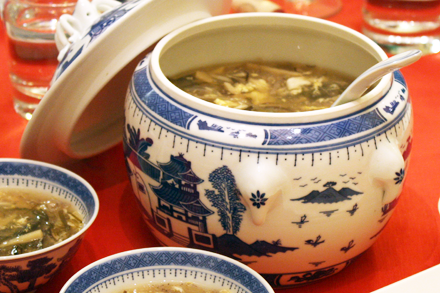
Earth Protect Blog
- Font size: Larger Smaller
- Hits: 2596
- 0 Comments
Banning Shark Fins from Shark Fin Soup
A law prohibiting the possession, sale and distribution of shark fins goes into effect in the state of Hawaii. Hailed as a victory, albeit a small one, by conservationists, this law nevertheless is a major step in recognizing the need for government action to help save the shark. Sought after by the Chinese for millenniums, shark fins were a delicacy reserved for the elite, and served at important celebrations and banquets. With the recent rise of the middle class in China the demand for shark fins has skyrocketed. This Chinese fondness for shark fins is threatening the survival of sharks. Although laws banning consumption of shark fins is a positive step in limiting shark fins trade we, as consumers, must also consciously make a choice not to eat shark fins if we were to succeed in preventing the extinction of the sharks.
A study in 2006, conducted by fisheries scientist Shelley Clarke, estimated that as many as 73 million sharks are killed every year for their fins. Mary O’Malley of Shark Savers, a shark conservation awareness group, said, “The growing consumption of shark fins has caused relentless overfishing of sharks, and many populations have plummeted by 90% or more in recent years as a result.” Many species of sharks worldwide face extinction.

The shark fin trade is an ancient practice according to Andrew Coe. Writing in his book Chop Suey Coe describes how 19th century European, and later American, traders brought shark fins to China from the warm waters of Indian Ocean and Southeast Asia to trade for tea and china. It was one of the most lucrative items for China trade of the period.
In order to supply today’s huge demand sharks are caught solely for their fins. After hacking off the fins in a practice known as “shark finning,” their bodies are dumped back into the ocean, where many still alive and unable to swim sink to the ocean floor. They eventually die from starvation, suffocation or are eaten. This is a cruel and inhumane practice that must be stopped.
I urge everyone to join in the movement to stop consuming shark fins and start opting for alternatives ingredients. Let me show you how you can reproduce a delicious soup that is in every way as tasty as one that contains real shark fins.
Texture is the key to enjoyment of the shark fins soup. The best ingredient for imitating the flavorless and crunchy jell like texture of shark fins is to use konnyaku, which is a Japanese yam flour cake. In Chinese it is known as moyu doufu (魔芋豆腐). You can find commercially produced konnyaku noodles in thin strands sold as vegetarian shark fins. It is also available as a cake, which is what I use in my recipe. The key is to make sure the konnyaku cake is julienned as thinly as possible to resemble the shark fins. To enhance the seafood flavor I use the type with seaweed powder mixed in.
If you prefer a non-vegetarian version you can replace the vegetarian stock with a stock of chicken and ham for a more authentic taste. Make the stock with chicken bones and ham flavored with Chinese cooking wine, ginger and scallion. I guarantee you will not miss the real shark fins with this alternative.
http://www.redcook.net/2010/07/01/mock-shark-fin-soup/
Comments
-
Please login first in order for you to submit comments













